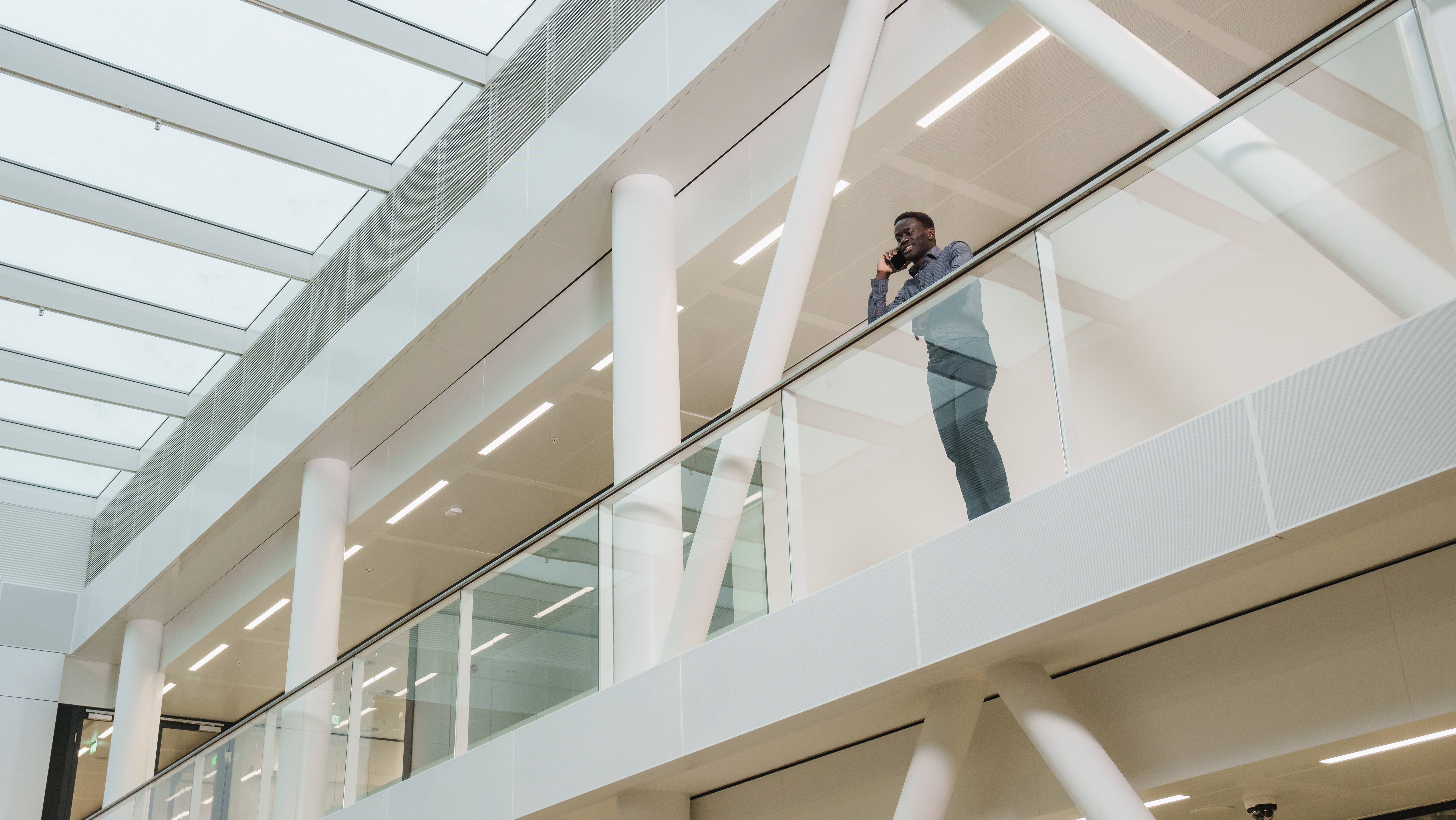
Merus encourages you to grow
Benjamin
Senior Translational Scientist
As a scientist, Benjamin Barasa is driven to make a difference for cancer patients. He is the Senior Translational Lead for one of our clinical programs. ‘My focus is on what we can do to help give patients a better quality of life. For me, our mission of closing in on cancer ties into that.’

Definitions of impact
‘During the drug development process, your personal definition of impact may shift,’ he says. ‘One definition could be: the drug is approved and being prescribed by doctors, which is the major milestone of the clinical trial process. An earlier example of impact could be: a physician involved in your clinical trial informs you they are treating a small group of patients and have observed that their tumors are shrinking.’
‘This second definition is important and worth celebrating. Especially in drug development, which takes time and commitment.’
Continuous learning
‘As a scientist, you are trained to have an analytical approach. In my current role, I interact with many stakeholders, which requires different skills and perspectives. Last year, I had the opportunity to participate in the Leadership Essential Program as part of our Merus Academy. Merus encourages you to think about different avenues of personal and professional development. There is also a lot of informal mentorship. Discussing your work with experienced colleagues is very helpful.’
‘The curiosity and hunger to innovate are very strong here. That appeals to me. Merus is always looking into new technologies, and implementing systems that helps us perform better. I find that we are small enough to act quickly, but big enough to make a difference together.’
Research that matters
Benjamin came to Utrecht in 2009 to study for his PhD. ‘The topic was biomolecular mass spectrometry. I was looking at proteins in patients with a hereditary blood disease. My aim was to understand how the disease develops, and to figure out which therapies could help them manage it. I chose to work in biotech so that my work would be directly relevant to more patients.’
He joined Merus in 2021. ‘Cancer is such a devastating disease, both for the patient and their families,’ says Benjamin. ‘There are things we can do to help give patients a better quality of life. For me, our mission of closing in on cancer ties into that. For friends and relatives of people with cancer, I want them to know there are teams of scientists and companies dedicated to finding safer and more effective therapies.’
Safety first
‘Merus has a dedicated product development team for each of its clinical programs. I am the Senior Translational Lead on one of the teams. A key responsibility of mine is to work on our biomarker strategy. This comes down to gaining a deeper understanding of how our clinical candidate works so we can select the patient population who we believe will have the potential to benefit most.’
Benjamin is currently working on a clinical program in the initial phase of the clinical trial. ‘First, we aim to make sure the investigational drug is safe, as safety is a critical priority. Then, we look to see if it’s effective in patients. If evidence of efficacy is observed in a small group, we hope to get the authorization to start a larger clinical trial with more patients. The end goal is to help as many people as possible.’

“Step by step, we are closing in on cancer.”
Interested in joining us on our mission?
Have a look at our vacancies.
As a scientist, Benjamin Barasa is driven to make a difference for cancer patients. He is the Senior Translational Lead for one of our clinical programs. ‘My focus is on what we can do to help give patients a better quality of life. For me, our mission of closing in on cancer ties into that.’
Research that matters
Benjamin came to Utrecht in 2009 to study for his PhD. ‘The topic was biomolecular mass spectrometry. I was looking at proteins in patients with a hereditary blood disease. My aim was to understand how the disease develops, and to figure out which therapies could help them manage it. I chose to work in biotech so that my work would be directly relevant to more patients.’
He joined Merus in 2021. ‘Cancer is such a devastating disease, both for the patient and their families,’ says Benjamin. ‘There are things we can do to help give patients a better quality of life. For me, our mission of closing in on cancer ties into that. For friends and relatives of people with cancer, I want them to know there are teams of scientists and companies dedicated to finding safer and more effective therapies.’
Safety first
‘Merus has a dedicated product development team for each of its clinical programs. I am the Senior Translational Lead on one of the teams. A key responsibility of mine is to work on our biomarker strategy. This comes down to gaining a deeper understanding of how our clinical candidate works so we can select the patient population who we believe will have the potential to benefit most.’
Benjamin is currently working on a clinical program in the initial phase of the clinical trial. ‘First, we aim to make sure the investigational drug is safe, as safety is a critical priority. Then, we look to see if it’s effective in patients. If evidence of efficacy is observed in a small group, we hope to get the authorization to start a larger clinical trial with more patients. The end goal is to help as many people as possible.’

“Step by step, we are closing in on cancer.”
Interested in joining us on our mission?
Have a look at our vacancies.

Definitions of impact
‘During the drug development process, your personal definition of impact may shift,’ he says. ‘One definition could be: the drug is approved and being prescribed by doctors, which is the major milestone of the clinical trial process. An earlier example of impact could be: a physician involved in your clinical trial informs you they are treating a small group of patients and have observed that their tumors are shrinking.’
‘This second definition is important and worth celebrating. Especially in drug development, which takes time and commitment.’
Continuous learning
‘As a scientist, you are trained to have an analytical approach. In my current role, I interact with many stakeholders, which requires different skills and perspectives. Last year, I had the opportunity to participate in the Leadership Essential Program as part of our Merus Academy. Merus encourages you to think about different avenues of personal and professional development. There is also a lot of informal mentorship. Discussing your work with experienced colleagues is very helpful.’
‘The curiosity and hunger to innovate are very strong here. That appeals to me. Merus is always looking into new technologies, and implementing systems that helps us perform better. I find that we are small enough to act quickly, but big enough to make a difference together.’
